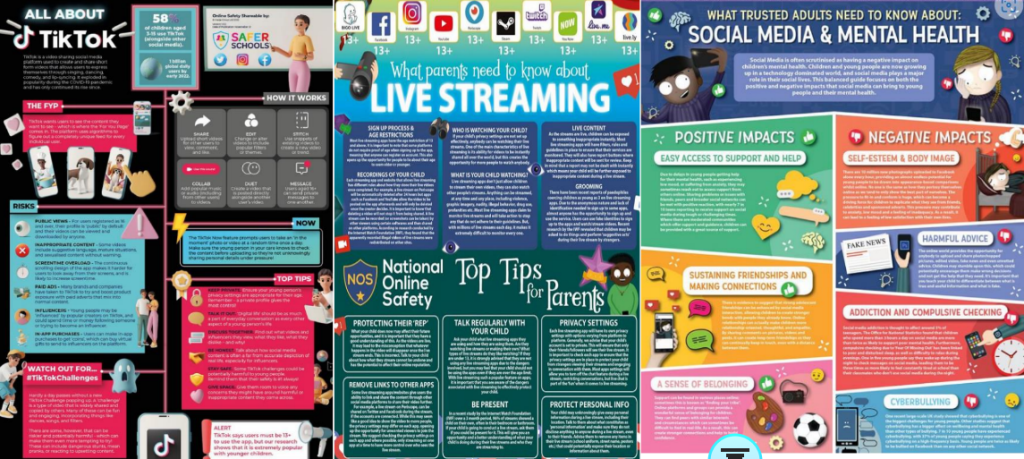
Parent’s Guide for Safe YouTube and Internet Streaming for Kids
The following information has been supplied by the UK Safer Internet Centre.
Children have access to a wonderful and extensive range of information, communication and entertainment systems now; far more than we will have been used to when we were their age. Being informed about the risks and how we can avoid them as parents will help to ensure they can enjoy this new technology without exposing them to the dangers it also offers.
Mobile phone safety

Mobiles are a great way for children to keep in touch with friends but can leave your child open to someone you don’t know getting in touch with them on their mobile or being bullied through their phone. There are some top tips for mobile safety:
- Remember that smart phones connect to the internet so the same advice for keeping safe online applies;
- Talk with your children about responsible use: agree a limit to spend on apps, downloads, calls and texts;
- Agree whether to switch them off at night or not;
- Discuss rules about not meeting up with people only met on line;
- Encourage your child to discuss any texts or calls that have made them uncomfortable or unhappy.
Online Gaming
Many young people play games online. These can be simple ones or large multiplayer games. In these games, people play against hundreds of other people who they often do not know. They can also interact with other players like in a social networking site.
- Talk with your child about same and responsible gaming: perhaps you could set limits to how long to play for; how to behave towards other gamers and agree not to meet up with anyone met through online games.
- Consider parental controls for your family and which games and site may be suitable and those that are not – www.pegi.info can give you more information and www.saferinternet.org.uk/parent-tech is a guide to setting up parental controls to help protect your child.
- Ensure you know how to report inappropriate behaviour from other players online or content to customer support teams.
Social networking and instant messaging
Adults and young people aged 13 and above can use the social networking site to post pictures, videos and chat to friends. Given the age restriction, we do not actively encourage children of primary age to have a social networking account.
- ‘Think before you post’ – once something is posted online someone can copy it.
- Protect your personal information, use privacy settings so only approved friends can view your full profile and personal details.
- Know how to block or delete instant messaging and social networking contacts
- Make sure you know how to report anything that upsets or worries you or your child; using the administrator or reporting link for that service provider.
If you are suspicious about the behaviour of an adult towards a child, you should report it to the police at CEOP www.ceop.police.uk
Online
Remember downloading or sharing copyrighted files without the permission of the owner is illegal and puts your computer and personal information at risk.
- Talk about what is and isn’t acceptable to download
- Protect your computer and wireless connections with passwords, up to date spy ware and Anti-virus protection.
For more information on how to enjoy content safely on the internet, see the Childnet guide at www.childnet.com/downloading.
At school we have a strict internet and e-safety policy and ensure that children are monitored at all times in their use of internet and access of online content, use firewalls and restrict access to unsuitable sites to protect them from exposure to possible threats.
If you are a parent/carer and want to know more about keeping your child safe and ensure they are using internet and social networking responsibly at home you can access the Childnet Guide at http://www.childnet.com/resources/downloading/home . You can visit https://www.vpnmentor.com/blog/the-ultimate-parent-guide-for-child-internet/ for more advise.
Open DNS
Open DNS provides a cloud-delivered network security services, delivering automated protection against advanced attacks for any device, no matter where it is. Family shield is pre-configured to block adult content, you can set it up and forget about it. Here are instructions on how to set it up on each of your devices:
- Android
- Apple phone
- iPad
- Mac
- Windows 7
- Windows 8
- Windows Vista
- Windows XP
- Xbox One
- Xbox 360
- Playstation 4
- Playstation 3
- Wii
NSPCC Resources
Please Click Here to visit the NSPCC’s website for information on guidance about staying safe online.
